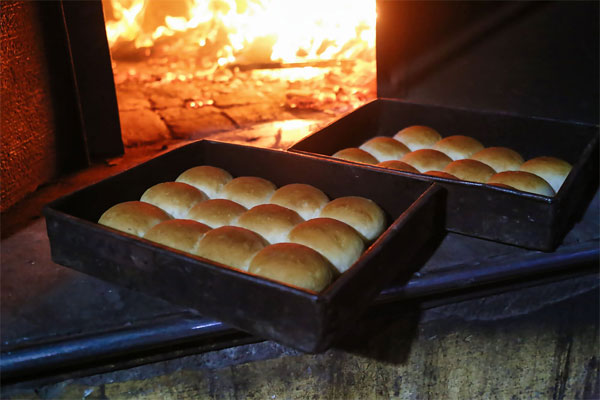Daijiworld Media Network - Mumbai
Mumbai, Jul 28: In the narrow lanes of Nagpada’s Madanpura, the aroma of freshly baked pav has all but disappeared. At the century-old Central Bakery, Shaikh Sajid Ali sits on a wooden bench, quietly watching workers dismantle his prized possession—a dome-shaped, wood-fired oven that once churned out over 2,000 pavs daily. For a month now, the oven has remained cold. “We’re selling pav from outside now, but customers can taste the difference. It’s just not the same,” Ali says.
That taste—nurtured over generations in traditional bhattis lined with firebricks and sealed with jaggery-fenugreek-mud paste—is now under threat.
The shift comes after a Bombay High Court directive mandated that all bakeries using wood, coal, or diesel must switch to green fuels within six months. In response, the Brihanmumbai Municipal Corporation (BMC) issued notices to hundreds of bakeries. But what was intended as an environmental win has spiraled into a legal and logistical crisis, with the compliance deadline ending Monday.

Just a few lanes away, Indian Bakery, founded in 1939, still operates with wood. Its current owner, Mirza Gayas Baig, is a petitioner in the High Court case. Although he has booked a gas oven, he’s still waiting for the Mahanagar Gas Ltd (MGL) pipeline. “They’ve done four surveys, but still no connection,” Baig says in frustration.
For many like Baig, electric ovens are neither viable nor safe. “You can’t store 25 LPG cylinders in a tight bylane. And electric ovens can’t deliver the heat needed to make proper pav,” he says. Pricing is another worry: “If I sell pav at Rs 8, no one will buy it.”
For Ali, the cost of transition is crushing: Rs 15–20 lakh for a new oven, wiring, and setup. With his bakery shut, he’s losing loyal customers and outsourcing pav that he says lacks soul. “Same size, same weight, but it turns chewy in hours,” he laments.
Some bakeries embraced the change more smoothly. At Navsagar Hindu Bakery in Lower Parel, Shesh Narayanan switched to gas two years ago after smoke complaints from neighbours. His gas-fired oven cost Rs 2.5 lakh, and he now spends Rs 1,680 a day on LPG. “If we get piped gas, our cost will halve,” he says, explaining that just heating the oven consumes 2-3 kg of gas.
According to BMC, 573 bakeries had been surveyed by October 2024, though insiders say the real number is closer to 1,500–2,000, many of them unlicensed. Of the surveyed bakeries, 311 still use traditional fuels. However, infrastructure is a major obstacle.
MGL surveyed 500 bakeries and found only 97 eligible for piped gas, but just 12 have actually received it, per a July 3 meeting between BMC and bakery associations. “Some bakeries are in lanes where even ambulances can’t reach. How will MGL dig there?” asks M Yaqub, head of a local bakers’ group. MGL has yet to respond publicly.
The matter returns to the High Court on Monday, with associations seeking more time—not just for installations and safety clearances, but also for placing bulk orders. “You can’t get 600 ovens overnight. Manufacturers don’t have that kind of stock,” Ali notes.
Although a central government scheme offers loans up to Rs 1 crore with a 35% subsidy (capped at Rs 10 lakh), accessing the funds is no easy feat. “They ask for PAN, Aadhaar, rent agreements, FSSAI licences, and the money goes to GST-registered vendors. Most of us don’t even have GST,” says Baig.
The real issue, say industry insiders, is structural. These are small, often family-run bakeries operating on razor-thin margins, with informal workers and no digital footprint.
“No one is denying that pollution is real,” says Yaqub. “But the solution can’t be to bulldoze tradition overnight without proper support. We need time—and help—to modernize without losing our identity.”